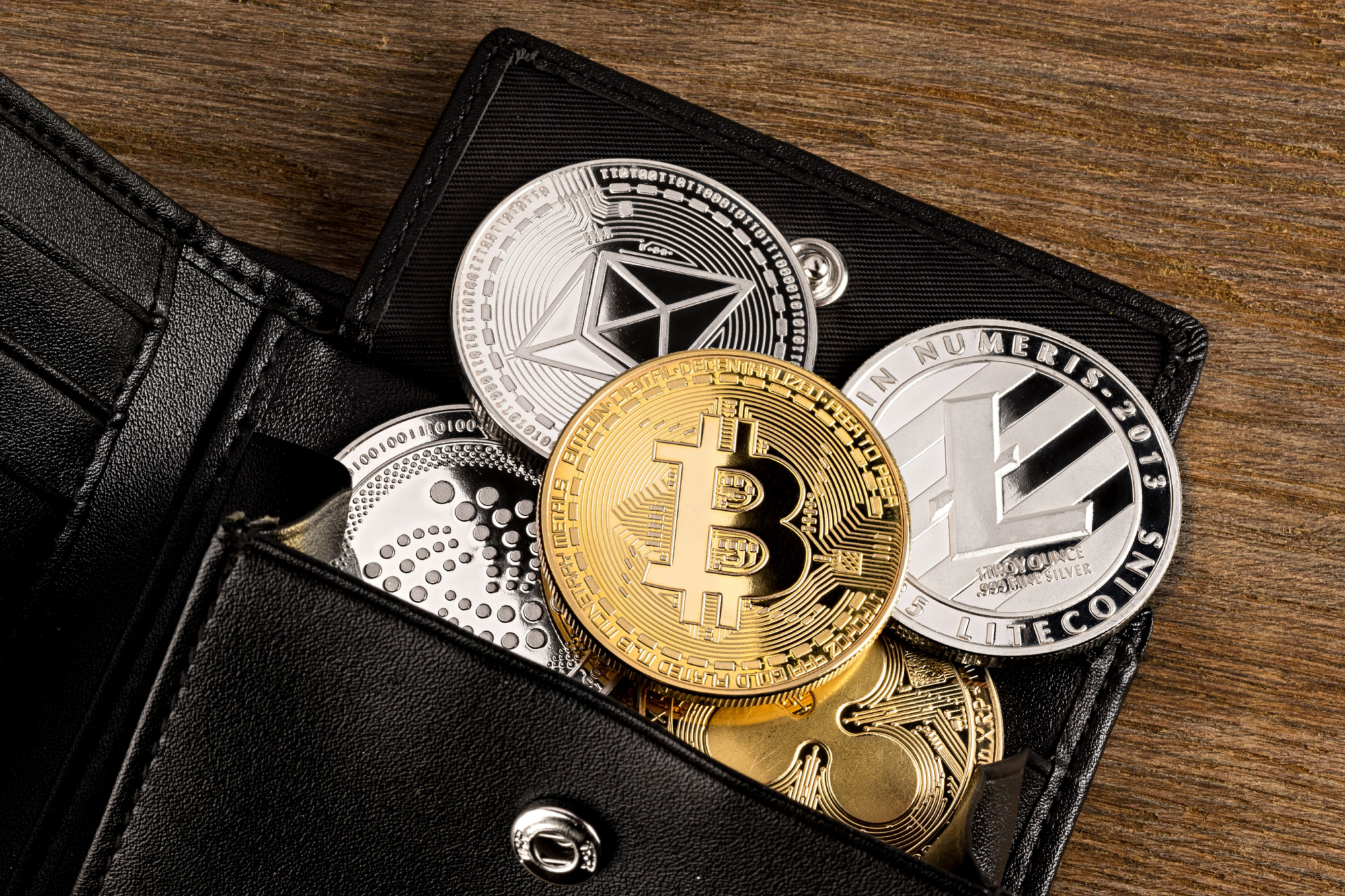Choosing a hot crypto wallet is essential to your journey in the blockchain space. In the ever-evolving world of crypto, the best hot wallets provide layers of security, focus on ease of use, and provide essential features to crypto holders.
With a dizzying array of wallets vying for your attention, finding the perfect blend of security, convenience, and functionality can feel like a treasure hunt.
This guide unravels the 10 best hot crypto wallets, helping you navigate the landscape and confidently secure your crypto future.
We’ll explore each option’s strengths and weaknesses, from veteran favorites to rising stars, ensuring you have all the necessary information to make the right choice for your digital assets.
Table of Contents
Table of Contents
Top 10 hot crypto wallets in 2024
- Best Wallet — Secure all-rounder with multi-currency support, advanced security features, and integration with DeFi platforms.
- OKX — Securely store, swap & trade thousands of cryptos & NFTs across 60+ networks with this user-friendly wallet for both EVM & non-EVM chains.
- Trust Wallet (by Binance) — User-friendly mobile wallet for storing a wide range of tokens and connecting to dApps, backed by Binance’s security infrastructure.
- MetaMask — A popular browser extension wallet for Ethereum and compatible tokens. It offers seamless dApp integration and NFT management.
- SafePal — Secure and feature-rich mobile wallet with hardware wallet integration, staking options, and built-in exchange for swapping tokens.
- Exodus — A beginner-friendly desktop and mobile wallet with a beautiful interface, multi-currency support, and built-in exchange for simple buying and selling.
- 1inch — Decentralized exchange aggregator with built-in wallet that offers the best execution prices for token swaps across multiple platforms.
- Zengo — Secure mobile-only wallet focusing on ERC-20 tokens, featuring multi-signature security and a built-in dApp browser.
- BitGo — An institutional-grade custodian wallet with industry-leading security, ideal for high-value investors and businesses.
- Electrum — Simple and secure desktop wallet for Bitcoin, offering advanced features like cold storage integration.
What is a hot wallet?
Hot wallets, aptly named for their online nature, are software applications that store your digital assets. Upon creating the wallet, crypto keys are generated. The crypto keys – the digital signatures granting access to your holdings. Imagine them as online vaults, readily accessible from your phone or computer.
Their ease of use is their charm. Sending and receiving cryptocurrency is as simple as a few taps or clicks, perfect for daily transactions or impulsive trades. Hot wallets often come integrated with exchanges, enabling seamless buying and selling.
Additionally, their intuitive interfaces and convenient multi-chain support make them the preferred choice for crypto newbies. The top play-to-earn games are built on different chains in the gaming sector. Gamers will prefer a wallet that supports multiple blockchain networks rather than a handful.
The best hot crypto wallets in 2024 reviewed
Understand the pros and cons of the hot crypto wallets, supported chains, and the features every wallet is offering.
1. Best Wallet – The best wallet for beginners with multichain support
Boasting a clean interface, robust security features, and an ever-expanding list of supported assets, Best Wallet is a rising star in the hot crypto wallet landscape.
Launched in 2022, Best Wallet focuses on user-friendliness and making crypto storage accessible to everyone, from newbies to experienced traders.
Best wallet features
- Multi-chain, multi-currency: Supports leading blockchains like Ethereum, Binance Smart Chain, and Polygon, along with a wide range of cryptocurrencies and tokens.
- Built-in exchange: Swap crypto directly within the wallet DEX, aggregating rates from multiple DEXs for potentially better deals.
- Integration with DeFi services: Access staking, lending, and other DeFi applications directly from the wallet.
- Multi-layered security: Best Wallet prioritizes security, incorporating two-factor authentication, biometrics, secure enclaves, and constant security audits. Additionally, users hold their private keys, providing them ultimate control over their assets.
- Native token: Serving as utility tokens within the Best Wallet, these tokens enable zero gas fees and reward users with airdrops.
Pros
- Unmatched user experience: Best Wallet shines with its intuitive design and smooth navigation, making it ideal for beginners and non-technical users.
- Enhanced security: The wallet’s multi-layered security approach and non-custodial nature offer peace of mind for security-conscious individuals.
- Growing asset support: The expanding list of supported coins and tokens caters to a wider range of cryptocurrency enthusiasts.
- DApp integration: Access to the vibrant world of decentralized applications directly within the wallet adds significant functionality and convenience.
Cons:
- Limited user reviews and feedback: This is a relatively new platform, so long-term reliability and community support are still being established.
- No browser extension: While apps are available, a browser extension will only developed at a later stage.
- No bridging: Similar to browser extensions, bridging from the wallet is still under development.
Best Wallet overview
Best Wallet is a compelling option for users seeking a user-friendly, secure, and accessible crypto wallet. Its strengths lie in its intuitive interface, robust security features, and steady growth in supported assets.
While still maturing, Best Wallet is a promising contender for those prioritizing ease of use and focusing on the core functionalities of crypto storage and management.
| Wallet | Best Wallet |
| Number of Supported Chains | 3 (Ethereum, Polygon, BNB Chain) |
| Mobile App | IOS and Android support |
| Staking | No (Planned for Phase 4) |
| Bridging | No |
| Native Token | Yes ($BEST) |
2. OKX – Best hot wallet from a centralized exchange (CEX)
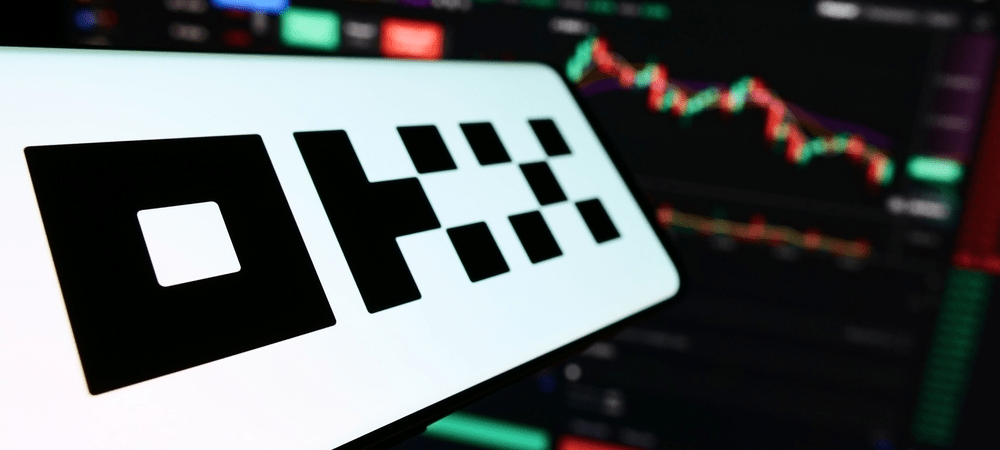
OKX Wallet is a non-custodial, multi-chain wallet developed by the popular cryptocurrency exchange OKX.
It aims to provide users with a comprehensive gateway to the Web3 ecosystem, allowing them to manage their crypto assets, explore decentralized applications (dApps), and participate in decentralized finance (DeFi) and NFT activities.
OKX wallet features
- Multi-chain support: OKX Wallet currently supports over 80 blockchains, including Ethereum Virtual Machine (EVM) and non-EVM chains, making it a versatile option for interacting with various dApps and protocols.
- DeFi integration: Users can access various DeFi features within the wallet, including staking various cryptocurrencies to earn passive income, borrowing and lending, and participating in liquidity pools.
- NFT management: OKX Wallet securely stores and displays NFTs from different chains, allowing users to manage their collection and interact with NFT marketplaces easily.
- DApp browser: The wallet integrates a built-in DApp browser, enabling users to discover and interact with DeFi applications, NFT marketplaces, and other Web3 services directly within the wallet interface.
- Security: OKX Wallet utilizes multiple security measures, including non-custodial storage, multi-factor authentication, and secure key management, to protect user funds.
Pros
- Extensive multi-chain support: OKX offers access to a significantly wider range of blockchain networks than many popular wallets.
- Integrated DeFi and NFT functionality: The wallet provides convenient access to various DeFi and NFT functionalities, eliminating the need for separate applications.
- User-friendly interface: The wallet interface is generally considered intuitive and easy to navigate, even for beginners.
- Security focus: OKX’s reputation and implemented security measures offer users peace of mind regarding their assets.
- No native token: Unlike some wallets, OKX Wallet does not have its token, which avoids potential conflicts of interest and simplifies usage.
Cons:
- Limited adoption and community: Compared to well-established wallets like MetaMask, OKX Wallet has a smaller user base and less community support.
- Centralized development: While non-custodial, OKX Wallet is still developed by a centralized exchange, which might raise concerns for users seeking complete decentralization.
- Centralized development: While non-custodial, OKX Wallet is still developed by a centralized exchange, which might raise concerns for users seeking complete decentralization
OKX wallet overview
OKX Wallet is an all-inclusive Web3 platform that offers a wide range of features to its users. It supports multiple blockchains and has integrated DeFi and NFT functionalities – making it an ideal option for anyone interested in exploring Web3.
Overall, users might consider alternative options if they prioritize complete decentralization or value the added functionality of native tokens within the wallet ecosystem.
| Wallet | OKX Wallet |
| Number of Supported Chains | 50 |
| Mobile App | Yes |
| Staking | Yes |
| Bridging | Yes |
| Native Token | No (OKB is the native utility token of the OKX exchange) |
3. Trust Wallet – Best self-custody hot wallet with staking capabilities

Acquired by Binance in 2019, Trust Wallet is a widely recognized hot wallet known for its user-friendly interface and broad cryptocurrency support. It prioritizes self-custody, meaning users hold their private keys directly, ensuring complete control over their funds.
Trust wallet features
- Extensive Coin Support: Supports over 70 blockchains and 4.5 million tokens, including popular assets like Bitcoin, Ethereum, and SUI.
- Staking Options: Earn passive income through staking supported assets directly within the wallet.
- Built-in DEX Aggregation: Access decentralized exchanges through the wallet to swap tokens with competitive rates.
- DApp Browser: Seamlessly interact with decentralized applications (dApps) for DeFi lending, NFT marketplaces, and more.
- Multilingual Interface: Available in a multitude of languages for global accessibility.
Pros
- User-Friendly Interface: Simple and intuitive layout, making it suitable for beginner crypto users.
- Non-Custodial Storage: Users hold private keys, ensuring full control and asset security.
- Wide Range of Features: Supports staking, dApps, and DEX integrations for a comprehensive crypto experience.
- Multi-Chain & Token Support: Access millions of assets across various blockchains, offering flexibility.
- Regular Updates & Development: Improved with new features and integrations continuously added.
Cons:
- Sole User Responsibility: Requires careful management of private keys and recovery phrases, as loss can lead to permanent fund loss.
- No Two-Factor Authentication (2FA): Lacks an additional layer of security compared to some competitors.
- Limited analytical insights: Limited tools that allow users to better analyze their crypto holdings.
- No desktop wallet: No desktop wallet to download for Windows or Mac. Some competitors offer desktop, browser extensions, and mobile wallets.
Trust wallet overview
Trust Wallet offers a user-friendly and feature-rich platform for managing crypto assets, making it a good choice for beginners and experienced users.
While some concerns exist regarding security features and potential scams, the wallet’s ease of use and integration with DeFi and Web3 functionalities make it compelling for those seeking a convenient and versatile hot wallet.
| Wallet | Trust Wallet |
| Number of Supported Chains | 70+ |
| Mobile App | Yes (iOS & Android) |
| Staking | Yes |
| Bridging | Yes |
| Native Token | Yes ($TWT) |
4. MetaMask – Best EVM support hot wallet to store Ethereum and ERC-20 tokens
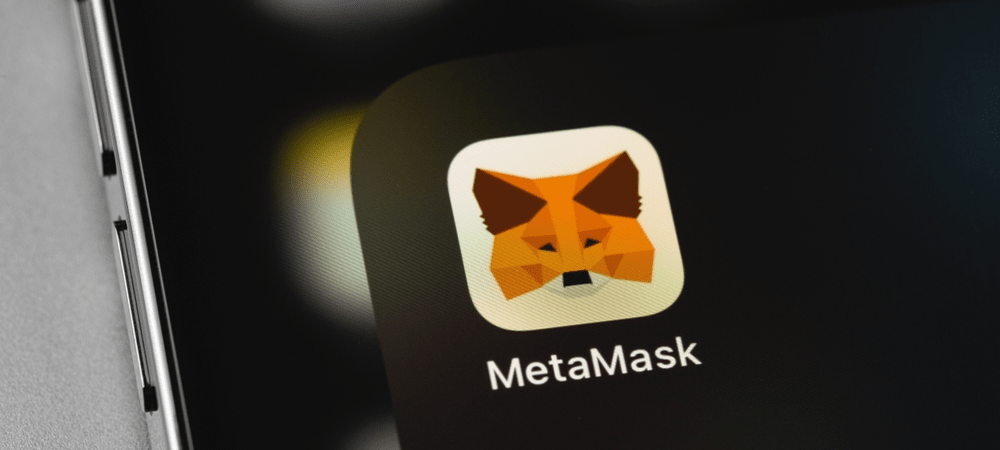
EVM stands for Ethereum virtual machine. An EVM wallet means all tokens that have EVM compatibility can be stored on MetaMasl.
Examples of popular EVM tokens are Polygon, Optimism, and BNB. The native Cardano token as an example is not EVM compatible, which means it cannot be stored on MetaMask.
MetaMask is a non-custodial hot wallet that has established itself as a leading gateway to the world of Web3.
With over 30 million monthly active users, it enables interaction with over 17,000 decentralized applications (dApps) and protocols across various blockchains.
This vast ecosystem integration makes it popular for users seeking a versatile and feature-rich experience.
MetaMask wallet features
- Cross-chain compatibility: Supports Ethereum, Polygon, BNB Chain, Avalanche, Optimism, Arbitrum, and more.
- Decentralized application (dApp) integration: Connects to DeFi platforms, NFT marketplaces, exchanges, and other Web3 services.
- Token management: Store, send, and receive various cryptocurrencies, including ERC-20 tokens.
- Self-custody: Users retain complete control over their private keys and assets.
- Security: Secure login with password and optional hardware wallet integration.
- Mobile apps: Available for iOS and Android devices.
Pros
- Extensive dApp compatibility: Explore a vast ecosystem of Web3 applications and services.
- Multi-chain support: Manage assets across multiple blockchains within a single interface.
- User-friendly interface: Simple and intuitive design suitable for beginners and experienced users.
- Security: Self-custody and optional hardware wallet integration for enhanced security.
- Open-source and community-driven: Continuously evolving with community contributions and updates./li>
Cons:
- Limited customer support: Relies primarily on online resources and community forums for troubleshooting.
- No Bitcoin support as the crypto wallet only supports EVM chains.
- No desktop wallet: Only browser extensions and mobile apps are available.
MetaMask wallet overview
MetaMask is a powerful and versatile hot wallet that offers a seamless gateway to the world of Web3. Its extensive dApp compatibility, multi-chain support, and user-friendly interface explain its popularity and wide usage.
Users should be aware of the limitations in customer support and the potential for high gas fees on specific networks.
| Wallet | MetaMask |
| Number of Supported Chains | 21 |
| Mobile App | Yes (iOS and Android) |
| Staking | Yes (Only on Ethereum Mainnet) |
| Bridging | Yes |
| Native Token | No |
5. SafePal – Best mobile hot wallet
SafePal is a well-rounded crypto wallet suite with hot (mobile and browser) and cold (hardware) options.
Founded in 2018 and backed by industry leaders like Binance, SafePal prioritizes security and user experience, aiming to empower users to manage their crypto assets independently.
SafePal wallet features
- Cross-chain compatibility: Supports over 32 blockchains and 30,000+ tokens, including major coins like Bitcoin, Ethereum, and NFTs.
- Secure storage: The mobile app includes multi-signature authentication and Secure Enclave technology, while the S1 hardware wallet boasts an EAL 5+ secure element and offline signing.
- In-app features: Trade and swap tokens with competitive rates, bridge assets across chains, participate in DeFi protocols, and access DApps directly from the wallet.
- User-friendly interface: Both the mobile and browser versions have a user-friendly interface, making the platform accessible to everyone.
- Additional features: Gas fee estimation, portfolio tracking, price charts, and news updates.
Pros
- Robust security: Multiple layers of protection for both hot and cold storage options.
- Extensive asset support: Wide range of blockchains and tokens covered, catering to diverse user needs.
- Cross-chain functionality: Streamlined swaps, bridging, and DeFi access across various chains.
- Feature-rich: Offers trading, staking, DApp integration, and more within the platform.
- User-friendly: Smooth interface and intuitive design for easy navigation./li>
Cons:
- Limited hardware wallet options: While the SafePal S1 is a solid choice, users seeking more advanced hardware wallets might find the options limited.
- Fewer advanced features: SafePal may lack certain advanced features such as portfolio tracking tools compared to some competitor wallets.
- Limited customer support options: Primarily relies on self-help resources and online communities.
SafePal wallet overview
SafePal stands out as a secure and feature-rich crypto wallet suite. Its cross-chain focus, user-friendly interface, and diverse log of features make it a compelling option for investors looking for an all-in-one solution.
While SafePal may not have the same long-standing reputation as some competitors, its commitment to security and user experience positions it as a promising player in the crypto wallet landscape.
| Wallet | SafePal |
| Number of Supported Chains | 100+ |
| Mobile App | Yes |
| Staking | Yes |
| Bridging | Yes |
| Native Token | Yes ($SFP) |
6. Exodus – Best multichain Web3 hot wallet
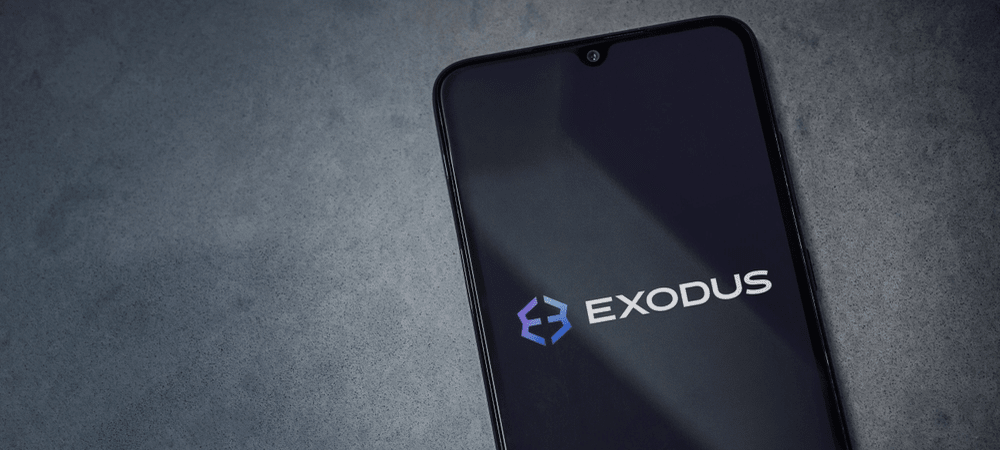
Exodus is a non-custodial crypto wallet for beginners and enthusiasts. It allows you to manage NFTs and 260+ cryptocurrencies, swap between them instantly, and earn passive income through staking.
Its user-friendly interface and multi-platform access (desktop, mobile, browser) make it convenient, but security relies solely on your device and backup phrase.
Consider it a user-friendly gateway to the crypto world, but prioritize self-custody education before diving in. Exodus stock is pending the US SEC review to be listed in US markets (NYSE).
Exodus wallet features
- Non-custodial: You possess the private keys, which grants you absolute control over your assets.
- Multi-asset support: Buy, sell, and exchange over 200 cryptocurrencies within the wallet.
- Built-in exchange: Swap coins directly through the platform’s DEX with competitive rates.
- Staking rewards: Earn passive income on supported assets like Cardano and Tezos.
- Portfolio and price tracking: Monitor your holdings and market performance visually.
- Mobile apps: Manage your crypto on the go (iOS and Android available).
Pros
- Beginner-friendly: The intuitive interface and clear learning resources make navigating easy.
- Visually appealing: Clean design and user-friendly charts offer a pleasant experience.
- Multi-functionality: Buy, sell, exchange, and stake from one platform.
- Mobile accessibility: Manage your crypto anytime, anywhere.
- Customer support: Live chat and an extensive knowledge base offer assistance./li>
Cons:
- Closed-source software: Security vulnerabilities could exist without code transparency.
- Limited advanced features: Lacks multi-signature functionality and cold storage integration.
Exodus wallet overview
Exodus provides a user-friendly and feature-rich platform that caters to novice and seasoned cryptocurrency users.
Its intuitive interface, multi-asset support, and built-in exchange make it a convenient platform for managing cryptocurrencies. However, its closed-source nature and slightly higher exchange fees require some consideration.
| Wallet | Exodus |
| Number of Supported Chains | 60+ |
| Mobile App | Yes (iOS and Android) |
| Staking | Yes (On select coins) |
| Bridging | Yes (Non-native) |
| Native Token | No |
7. 1INCH – Best Defi hot wallet from a Decentralized Exchange (DEX)

1inch Wallet positions itself as a gateway to the decentralized finance (DeFi) world, combining a non-custodial wallet with an integrated DEX aggregator.
Its core proposition lies in finding the best exchange rates for crypto swaps across multiple DeFi protocols, aiming to minimize slippage and maximize user return.
1inch wallet features
- DEX Aggregation: Access liquidity from various DeFi protocols through a single interface, ensuring optimal swap execution.
- Multi-chain Support: Connect to popular blockchains like Ethereum, Polygon, Avalanche, and Binance Smart Chain.
- NFT Management: Store, send, and receive NFTs alongside your crypto assets.
- Gas Fee Optimization: Choose between preset gas fee options or set custom gas levels for transaction prioritization.
- Staking & Earn: Earn passive income by staking supported tokens within the wallet.
- WalletConnect Integration: Connect to DeFi applications and DApps through WalletConnect.
Pros
- Competitive Swap Rates: Leverage 1inch’s DEX aggregation for better returns on token swaps.
- Multi-chain Compatibility: Broad blockchain support offers flexibility for exploring different DeFi ecosystems.
- NFT Management: Conveniently manage your NFT collection alongside other crypto assets within the wallet.
- Passive Income Opportunities: Earn rewards through stake-supported tokens and participate in liquidity pools.
Cons:
- Self-custodial: Self-custodial crypto wallets pose risks due to the potential loss of private keys, leading to irreversible asset loss and security concerns.
- Technical Knowledge Required: While user-friendly, advanced features like gas fee customization require a further understanding of DeFi mechanics.
1inch wallet overview
1inch wallet boasts impressive features like multi-chain support, best-execution swaps via DEX aggregation, and NFT management.
Users praise its clean interface, fast swaps, and reduced slippage. However, concerns exist about occasional high gas fees and limited customer support.
While imperfect, 1inch offers a secure and convenient DeFi experience for experienced crypto users willing to navigate decentralized exchanges. For beginners, alternatives with simpler UIs might be preferable.
| Project | 1inch (DEX) |
| Number of Supported Chains | 12 |
| Mobile App | Yes (iOS and Android) |
| Staking | Yes, for selected tokens |
| Bridging | Yes, built-in bridge connections |
| Native Token | 1INCH, the native token of the DEX. |
8. Zengo – Best secure hot wallet without a seed phrase
Zengo stands out in the crypto wallet landscape for its unique security model centered around Multi-Party Computation (MPC).
Compared to traditional seed phrase-based wallets, Zengo eliminates the single point of failure, offering enhanced protection against private key exposure.
Zengo wallet features
- MPC security: Transactions are split and distributed across multiple servers, reducing the risk of unauthorized access.
- Face & voice ID: Biometric authentication adds an extra layer of security.
- Legacy Transfer: A novel feature allowing wallet inheritance without private key sharing.
- Advanced web3 firewall: Protects against phishing attacks and unauthorized transactions.
- Multi-asset support: Over 120 cryptocurrencies and NFTs, including Bitcoin, Ethereum, and popular altcoins.
- Buy & sell cryptocurrencies: Purchase Bitcoin and other assets directly within the app with various payment methods.
- Staking Rewards: Earn passive income on select digital assets like Tezos and DAI.
Pros
- Unparalleled security: MPC technology mitigates single-point-of-failure vulnerabilities.
- Convenient biometric authentication: Face and voice ID offer easy and secure access.
- Inheritance-friendly legacy transfer: Securely transfer your assets to designated beneficiaries.
- Web3 firewall: Enhanced security against malicious actors and scams.
- Rich feature set: Supports various currencies, trading, staking, and NFTs./li>
Cons:
- No desktop app: Currently available only as a mobile app, potentially limiting usability for some users.
- Limited exchange integrations: The platform only provides the option to buy and sell cryptocurrencies directly, and does not support integration with external exchanges.
- Limited fiat on-ramps: Options for purchasing crypto directly within the wallet are currently limited.
- Relatively new platform: Compared to more established players, Zengo has a shorter track record and may require additional features to match its offerings.
- Limited staking options: Zengo currently offers staking for only a handful of cryptocurrencies compared to other wallets with broader support.
- No Decentralized Exchange: Unlike some competitors, Zengo doesn’t offer a built-in DEX for swapping or trading crypto assets.
Zengo wallet overview
Zengo prioritizes security above all else, making it a compelling choice for individuals seeking maximum protection for their crypto assets.
Transaction fees are competitive but not the lowest. Zengo boasts robust security features, including multi-signature transactions and multi-device logins. However, some users report occasional bugs and glitches.
Overall, Zengo caters to experienced crypto users seeking a secure, self-managed wallet. Newcomers might find the learning curve steep and the lack of fiat integration inconvenient.
| Wallet | Zengo |
| Number of Supported Chains | 85+ |
| Mobile App | Yes |
| Staking | Yes (Currently only with Tezos) |
| Bridging | Yes (Non-native, Through WalletConnect) |
| Native Token | No |
9. BitGo – Best hot wallet for managing a cryptocurrency portfolio
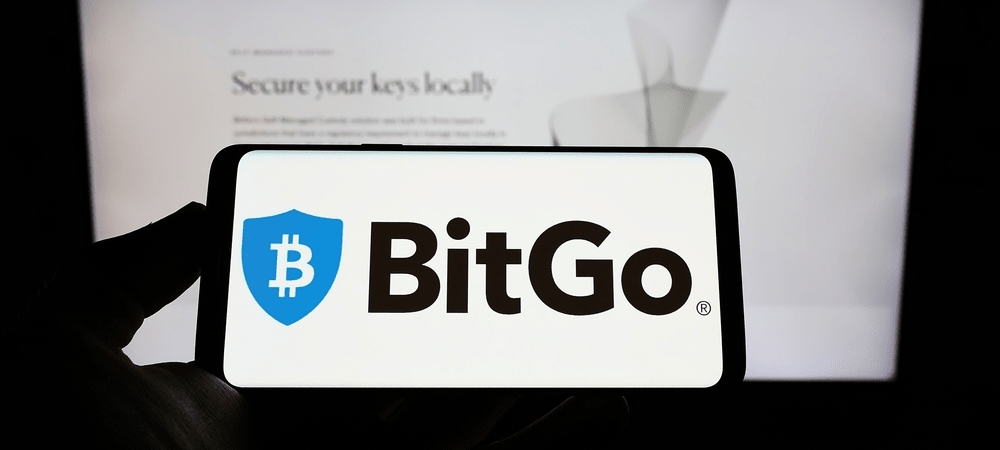
BitGo is a hot wallet solution that primarily targets institutional investors and businesses, but it also offers features for individual users.
While it may not offer the bells and whistles of user-friendly retail wallets, BitGo prioritizes security like no other.
Its multi-signature technology and cold storage for private keys provide institutional-grade protection, making it a trusted solution for those who value peace of mind above all else.
BitGo wallet features
- Multi-signature security: Transactions require approval from multiple parties, reducing the risk of unauthorized access.
- Institutional-grade security: BitGo’s Trust Company is a qualified custodian subject to rigorous regulatory audits and capital requirements.
- Cold storage for private keys: Private keys are never exposed online, minimizing the risk of hacking.
- Support for multiple chains: Store and manage various cryptocurrencies across several blockchains.
- Advanced trading features: Place orders, set price alerts, and automate trading strategies.
- Integrations with exchanges and platforms: Connect your BitGo wallet to various financial services.
Pros
- Unparalleled security: Multi-sig, cold storage, and institutional-grade backing make BitGo one of the most secure hot wallets.
- Institutional services: Businesses and investors benefit from features like whitelisting, multi-user accounts, and custom security policies.
- Support for multiple chains: Manage diverse crypto portfolios with support for various popular blockchains.
- Advanced trading tools: Automate your trading strategies and execute sophisticated orders within your wallet.
- Integrations and partnerships: Connect your BitGo wallet to various exchanges, platforms, and DeFi protocols./li>
Cons:
- Steeper learning curve: The interface may be less intuitive than some retail-focused wallets, requiring more technical knowledge.
- Limited features for individual users: Compared to some competitor wallets, BitGo offers fewer features for basic crypto storage and spending.
BitGo wallet overview
BitGo excels in security, boasting multi-signature wallets, bank-grade vaults, and institutional-level insurance. Users praise its smooth trading interface and fast transactions, which are ideal for active investors.
However, BitGo caters primarily to institutions and high-rollers, with fees exceeding most retail wallets. Limited coin support and a lack of staking/earning features might deter individual users.
| Wallet | BitGo |
| Number of Supported Chains | 10+ |
| Mobile App | Yes |
| Staking | Yes |
| Bridging | No |
| Native Token | No |
10. Electrum – Best hot wallet for Bitcoin storage
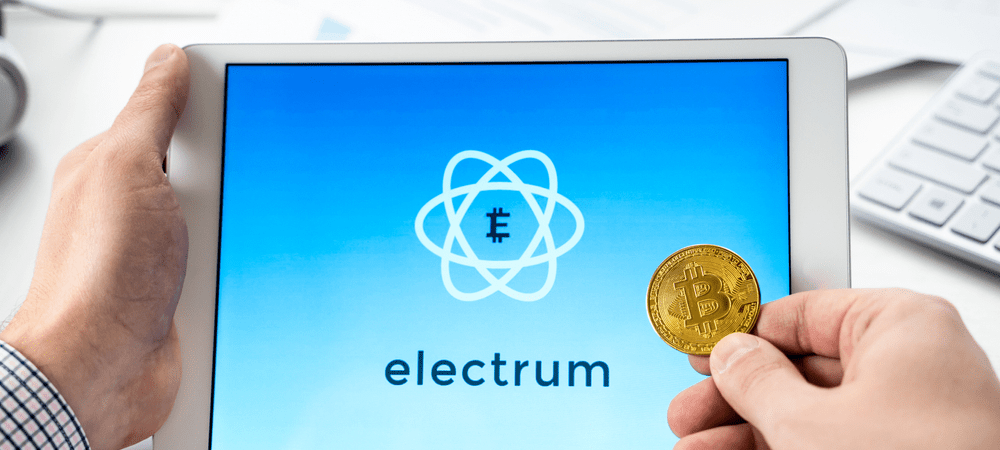
Released under the MIT License, Electrum is a popular and free hot wallet primarily focusing on Bitcoin (BTC). It offers a robust security model, advanced features, and a user-friendly interface, making it a strong contender for those seeking a reliable option for managing their BTC holdings.
Pros
- Top-notch security: Open-source code, no third-party control over private keys, and SPV verification contribute to a secure platform.
- Lightweight and fast: Downloads only essential blockchain data, making it ideal for slower internet connections.
- Advanced features: Multi-sig, cold storage, and hardware wallet integration offer flexibility and security options.
- No lock-in: Export your private keys for use in other wallets, ensuring you maintain control over your funds.
- Long-standing reputation: Established in 2011, Electrum boasts a proven track record and a trusted community./li>
Cons:
- Limited coin support: Electrum primarily focuses on Bitcoin and a few altcoins. It doesn’t offer the diverse chain support of some competitors.
- No native token: Unlike some wallets, Electrum doesn’t have a native token, which may limit its appeal for some users.
Electrum wallet overview
Electrum is a secure, feature-rich, and user-friendly Bitcoin wallet. Its SPV technology and cold storage support make it ideal for security-conscious users.
However, its limited coin support and lack of a native token might deter those seeking a more diversified or token-centric wallet experience.
| Project | Electrum |
| Number of Supported Chains | 1 (primarily Bitcoin) |
| Mobile App | Yes |
| Staking | No |
| Bridging | No |
| Native Token | No |
Finding the perfect hot wallet: A guide for crypto users
Choosing the right hot wallet can be daunting, especially with the ever-evolving crypto landscape. However, carefully considering your needs and priorities, you can find the perfect one to store and manage your digital assets securely. Here’s a roadmap to guide you:
1. Assess your needs
- Cryptocurrency types: What coins or tokens do you plan to hold? Ensure your chosen wallet supports your specific assets.
- Trading frequency: Are you a frequent trader or a long-term holder? Consider transaction speeds and fees.
- Mobile vs. Desktop: Do you prioritize convenience or security? Mobile wallets offer accessibility, while desktop ones can be more secure.
- Advanced features: Do you need staking, DeFi integration, or bridging capabilities? Choose a wallet that caters to your desired functionality.
2. Network compatibility
- Blockchain networks support: For seamless transactions, ensure that the wallet supports the blockchain of your chosen cryptocurrency.
- Network fees: Compare transaction fees across different networks offered by the wallet. Lower fees can significantly impact your trading costs.
3. Security and features
- Custodial vs. Non-custodial: When using a custodial wallet, a third party holds your private keys, while non-custodial wallets give you full control and responsibility over your assets.
Remember: “Not your keys, not your crypto.”
This popular refrain underscores the importance of private key control. While custodial wallets may seem convenient, non-custodial wallets guarantee absolute ownership and security of your assets. Always prioritize wallets where you hold the private keys.
- Security features: Look for two-factor authentication, multi-signature support, and robust encryption to protect your digital assets.
- Additional features: Staking pools, DeFi integration, and token swapping within the wallet can offer convenience and earning potential.
4. Usability and reputation
- User interface: Choose a wallet with a clean and intuitive interface for easy navigation and transaction management.
- Mobile app support: If you prefer mobile access, ensure the wallet has a well-rated and secure mobile app.
- Customer support: Reliable and responsive customer support is crucial for resolving issues.
- Community and reputation: Research the wallet’s reputation within the crypto community and consider reviews from trusted sources.
5. Diversification
- Diversify your assets to mitigate risk: Consider spreading your assets across multiple wallets for added security and risk management.
- Backups are essential: Always back up your private keys securely, regardless of your chosen wallet.
Best hot crypto wallet tips:
- It is essential to prioritize wallets with solid security features and never share your private keys with anyone.
- Do your research and thoroughly investigate the wallet you plan to invest your crypto assets in.
- Stay up-to-date with the latest developments and security best practices in the constantly evolving crypto landscape.
- Read expert reviews and user testimonials to gain insights into real-world experiences. Compare features, pros, and cons, and don’t hesitate to contact the wallet’s community for feedback.
- Most wallets offer free trials or “play” versions. Before committing, take a test drive to ensure the interface and features align with your needs and comfort level.
Following these steps and carefully considering your needs, you can find the perfect hot wallet to manage your crypto journey safely and conveniently.
Using multiple crypto wallets for enhanced security
Hot wallets offer convenient access but pose security risks. Using multiple hot wallets mitigates these risks, similar to diversifying investments.
Imagine one wallet breach: all your crypto vanishes. With multiple wallets, your other holdings remain safe even if one is compromised. Think of it as layers of defense, each requiring separate breaches to reach your entire portfolio.
For example, NFT collectors tend to use a dedicated wallet for holding NFTs and another wallet that is used for buying and selling NFTs. In the event the NFT marketplace is compromised, they have taken the best measures to keep their digital assets secure.
This layered approach deters attackers and allows you to tailor security to specific needs.
You can have a dedicated wallet for everyday transactions, keeping a smaller amount accessible, while a separate, more secure wallet houses your long-term holdings. This compartmentalization strengthens your overall security.
While convenience might tempt you to keep everything in one place, prioritizing security is key.
Employing multiple hot wallets as a strategic measure offers peace of mind, knowing your crypto is protected by a layered defense, significantly reducing the potential impact of any unforeseen threats.
Hot wallets vs hard wallets: Understanding the trade-offs
| Product | Hot Wallets, i.e., MetaMask, Edge Wallet | Cold Wallets i.e. Ledger, Trezor |
| Connection | Online | Offline |
| Device | Software app (phone, computer) | Physical device (USB stick) |
| Convenience | Easy access, fast transactions | More cumbersome transactions |
| Security | Long-term holding, large amounts | Highly secure, less prone to online attacks |
| Best for | Frequent trading, small amounts | Individuals with security concerns |
How to keep hot crypto wallets safe
As hot wallets are targeted by bad actors, adopting security measures will help keep your stored crypto safe.
According to Chainalysis, the number of stolen crypto due to on-chain and off-chain attacks dropped in 2023 compared to previous years but remains a significant threat.
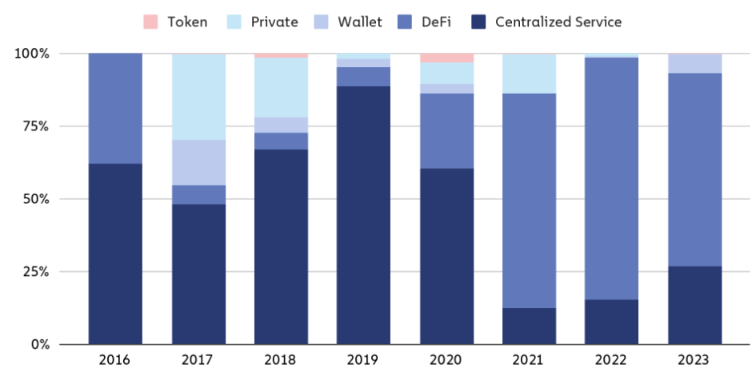
Crypto stolen between 2016 – 2023, source: Chainlaysis
The most common attacks on hot wallets are phishing and compromised private keys.
Consider adopting the following guidelines to keep your cryptocurrencies safe and secure.
- Do not share your private key: The private key is often the seed phrase of your hot wallet. It may consist of 12 – 16 random words. Bad actors may attempt to manipulate you on social media platforms such as Telegram and Discord to share the private key. Under no circumstances the seed phrase should be shared.
- Fake airdrops: The bad actor will send you a message on social media or tweet that a certain project is giving away free tokens. A malicious link is provided to connect the wallet. When the hot wallet is connected to the malicious protocol, the bad actor gains access to your wallet and begins the ‘draining’,’ a term used to describe the process of withdrawing large batches of cryptocurrencies from wallets.
- Fake support representatives: A phishing attack that is very common on social media. The bad actor impersonates one of the project’s officials by sending direct messages to the victim, offering assistance with queries that were asked in the public chat. All officials, admins, or moderators will never dm you first.
- Verify you are connecting to the correct address: For example, the Uniswap DEX address when connecting or signing in is app.uniswap.org. If the address is app.unlswap.org, it is likely a phishing attempt. Some bad actors will clone a legitimate website and heavily promote it on Google to trick people into thinking this is the official website. When connecting the crypto wallet, the bad actor gains access to your wallet and begins the draining.
- Check received tokens source: Fake tokens may be sent to your wallet in an effort you interact with them, which may grant the bad actor access to the wallet. Always check where the received tokens are from and verify the contract address is legitimate.
- Check for regular updates: Hot wallets do not automatically update. Please check for updates frequently. Some updates may be security patches that will keep your wallet safe.
- Stay updated: Follow crypt news media channels to be aware of newly discovered vulnerabilities.
- Unrealistic offers: There were incidents where Twitter (known as ‘X’), Telegram, or Discord servers were compromised. Bad actors seized control of the accounts and posted an ‘unrealistic offer’ with a link to a wallet drainer to connect your wallet to or to send your tokens in exchange for tokens.
A recent example is Masa, which had its Twitter account compromised on 29th January 2024 despite implementing 2FA. The bad actor posted a fake airdrop, hoping to lure holders to a wallet drainer.
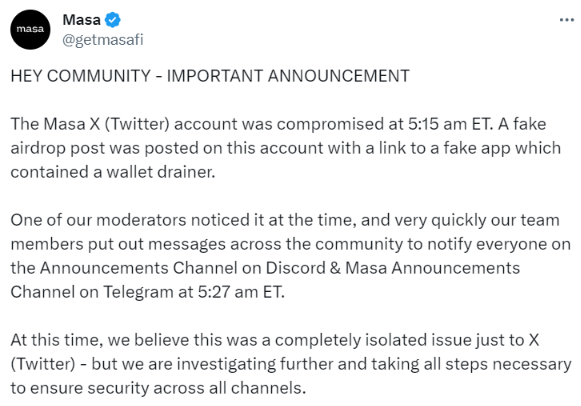
source: Twitter
Take extreme caution when such lucrative offers are made.
Our verdict on the best hot crypto wallets
While each option shines in its niche, crowning one “best” hot wallet is tricky. Best Wallet leads for beginners while MetaMask reigns supreme for Ethereum enthusiasts.
Trust Wallet’s direct staking capabilities and multi-chain support appeal to many crypto investors.
SafePal and Exodus impress with their intuitive interfaces and Web3 integration, while Electrum remains a trusted haven for Bitcoin purists. DeFi mavens might prefer 1inch or OKX, and those seeking security without seed phrases should consider Zengo.
Ultimately, the best hot wallet is the one that seamlessly aligns with your crypto goals and preferences. So, research, compare, and choose wisely!
Alternatives to hot wallets: hardware wallets
The alternative to a hot wallet is a cold or hardware wallet. These wallets are stored offline in cold wallets, often on a USB stick.
As hardware wallets are stored offline, they cannot be compromised while browsing the web. For example, many MetaMask users make use of the browser extension. If a malicious site is accidentally browsed, there may be an attempt to compromise the wallet.
Hardware wallets like Ledger and Trezor are only active when connected to the computer. Unlike hot wallets, which are mostly free, hardware wallets can be pricey.
Ultimately, choosing between hot and cold wallets depends on your needs. With new cryptocurrencies released every day, the wallet must support multiple chains.
How we rate and review hot wallets
Navigating the dynamic landscape of cryptocurrency – choosing the right crypto wallet can prove to be a daunting task, akin to traversing through a digital jungle.
To help you choose the perfect storage option for your digital assets, we meticulously evaluated and reviewed numerous wallets based on a robust set of criteria.
- Security Features: We prioritized your crypto’s safety. We examined every detail, from encryption and private key protection to multi-factor authentication and past security breaches. We also checked whether they work with cold storage and how well they resist attacks.
- User-Friendliness: We assessed the user interface, prioritizing intuitiveness, ease of navigation, and clarity of information. Mobile wallets were tested for on-the-go accessibility and smooth operation, while desktop versions were evaluated for seamless integration with common operating systems.
- Wallet Features: We explored the feature set, evaluating support for various cryptocurrencies and tokens, staking and DeFi integration, in-app exchange capabilities, and NFT compatibility. Bonus points were awarded for dApp browsing and educational resources, empowering you to make informed decisions within the wallet’s ecosystem.
- Reputation: We also examined the wallet’s background, scrutinizing its team, development roadmap, and community engagement. Open-source code and transparent security audits were highly valued, while any red flags concerning regulatory compliance or past security breaches were meticulously documented.
- Innovation Pulse: Crypto evolves at breakneck speed. We sought wallets at the forefront of innovation, embracing emerging technologies and adapting to the ever-changing landscape. The future-proofed wallets stood out from the stagnant crowd.
- Community Pulse: No review is complete without listening to the voices that matter most – the users. We combed through online forums, social media communities, and review platforms to gauge real-world experiences with each wallet. User feedback on customer support, bug resolution, and overall satisfaction provided invaluable insights into the practical realities of using each platform.
Our in-depth analysis helped us cut through the clutter and highlight the standout hot wallets amidst the sea of options.
Please note that these are only suggestions. Your journey may take a different route depending on your needs and preferences.
However, with our approach as your compass, you can confidently explore the world of crypto wallets and find the perfect place to store your digital assets.
FAQs
Do I need a hot wallet?
If you plan to buy, sell, or trade crypto actively, a hot wallet is essential. It’s like your online bank account for crypto, letting you easily make transactions and access your funds anytime, anywhere.
Do hot wallets support all blockchain networks?
It depends on the wallet. Some wallets support only one blockchain network, like Bitcoin’s, while others are multi-currency and handle networks like Ethereum, Binance Smart Chain, etc. Choose a wallet compatible with the coins you own.
Are hot wallets safe to use?
While convenient, hot wallets are always connected to the internet, making them slightly more vulnerable to hacking than cold storage options like hardware wallets. However, reputable hot wallets employ robust security measures.
Which hot wallet is the easiest to use?
Most online crypto wallets are easy to use. However, the interface, tools, and multi-chain support vary from wallet to wallet. Best Wallet, for instance, strives to provide additional tools such as trending tokens and upcoming ICOs incorporated inside the wallet.
Is using one hot wallet enough?
It depends on your needs and risk tolerance. Some users prefer spreading their holdings across multiple wallets for added security. Consider diversifying your storage if you have large amounts of crypto or deal with sensitive transactions.
How are hot wallets hacked?
Phishing attacks, malware, and social engineering scams are common tactics. Hackers may trick you into revealing your private key or downloading malicious software that steals your information. Always be cautious, practice good cyber hygiene, and only use trusted wallets and exchanges.
Are there fake crypto wallets?
Yes, beware of fake apps and websites mimicking legitimate wallets. Download wallets only from official sources and double-check URLs before entering your private keys. Research a wallet’s reputation before trusting it with your crypto.
References
This article was originally published by a www.valuewalk.com . Read the Original article here. .

